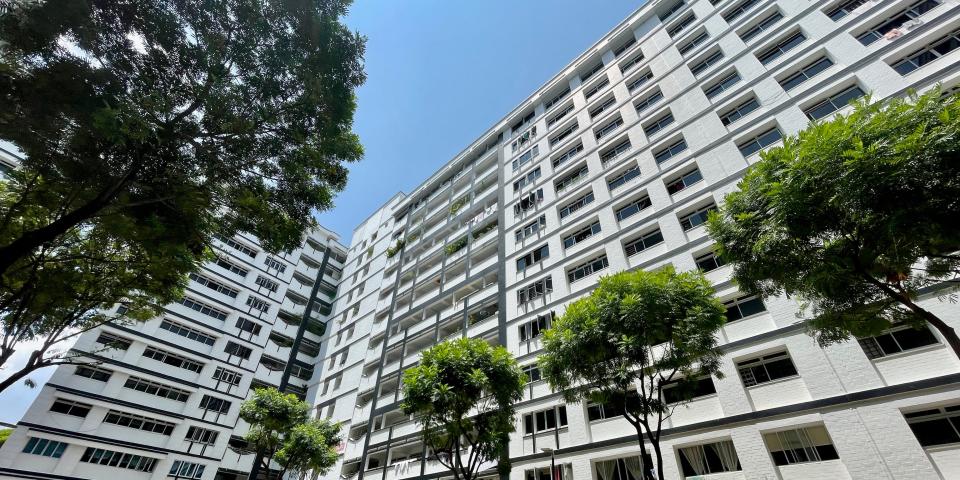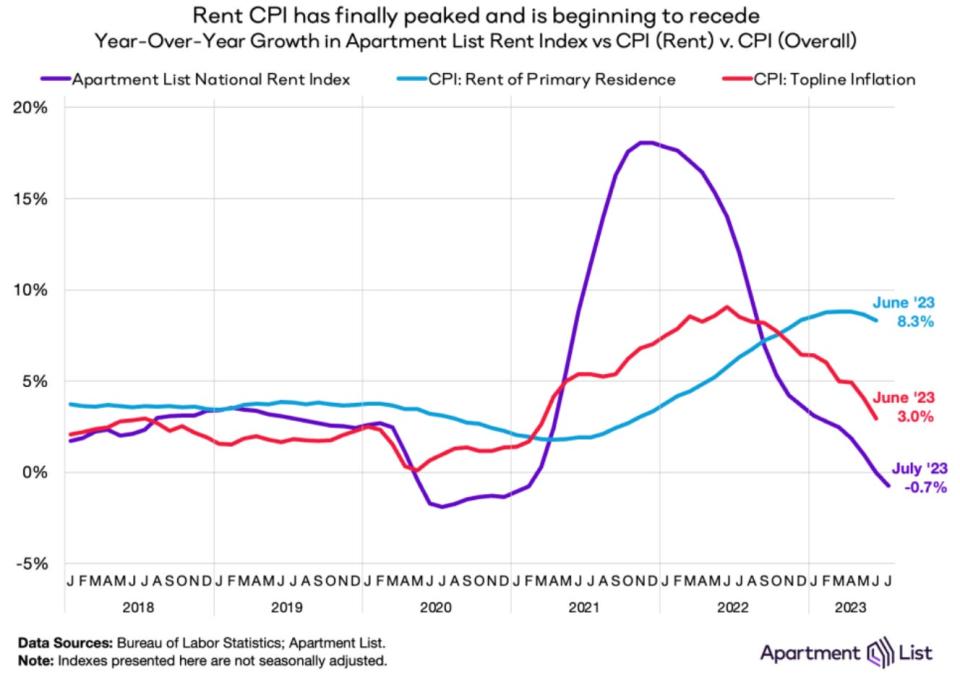Apartment rents in the US declined in July for the first time since the pandemic began

Apartments in the US today are renting, on average, for less than they did a year ago.
Slowing demand and increasing supply compared to prior years has led to slowing rent growth in 2023.
On a month-over-month basis, however, rents continued to edge higher.
The average apartment rent price just saw its first annual decline since the pandemic started, according to data from Apartment List.
Thanks to slowing demand and increasing supply, prices have eased across the US compared to the same time last year, with 67 of largest 100 US cities seeing lower prices on an annualized basis. Despite July being a peak moving season where rent growth typically accelerates, apartment rent prices are down 0.7% year-over-year.
By comparison, in pre-pandemic years, July rent growth averaged 0.6%.
"This stagnation indicates that the market cooldown that started in the second half of 2022 is continuing, even as prices rise modestly month-over-month," Apartment List's research team said.
On a monthly basis, rents are still ticking up, rising 0.3% nationally, but researchers pointed out that the rental market slowdown is finally being reflected in inflation figures.
In recent months, Apartment List's National Rent Index has shown to be a strong leading indicator of the housing and rent components of CPI data. The index has been cooling for a year, which points to a coming slowdown for government data, the researchers said.

The Federal Reserve last Wednesday made its 11th interest rate hike, putting the federal funds rate at the 5.25%-5.50% range. Markets anticipate that this was the final hike of the cycle, and expect rates to come down in 2024.
Year-to-date, rents are up by a total of 2.6%, and are growing by a slower rate than every previous year measured by Apartment List's index, besides 2020.
The group's data show that rent growth averaged 4.3% from 2017 to 2019 during the January through July months. Then, in 2021 and 2022 when inflation soared, that figure for the same stretch climbed to 9.4% on average.
"Seasonal trends suggest that monthly rent growth will continue to slow for the remainder of the year, so it is likely that annual rent growth will sink further into negative territory in the months ahead," the researchers said.
"The surging rent growth we observed in 2021 and early-2022," they added, "is now solidly behind us."
Read the original article on Business Insider

 Yahoo Finance
Yahoo Finance 